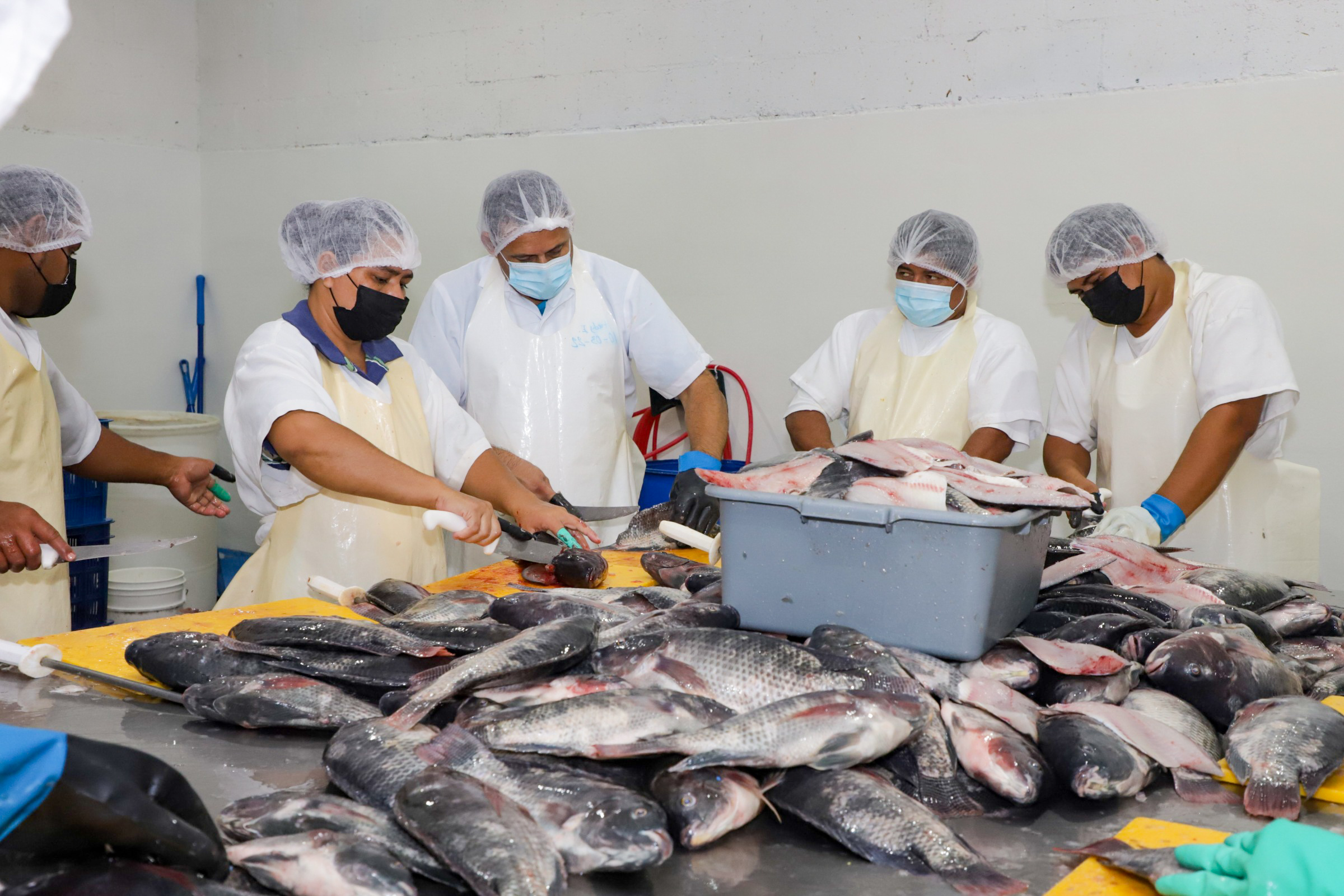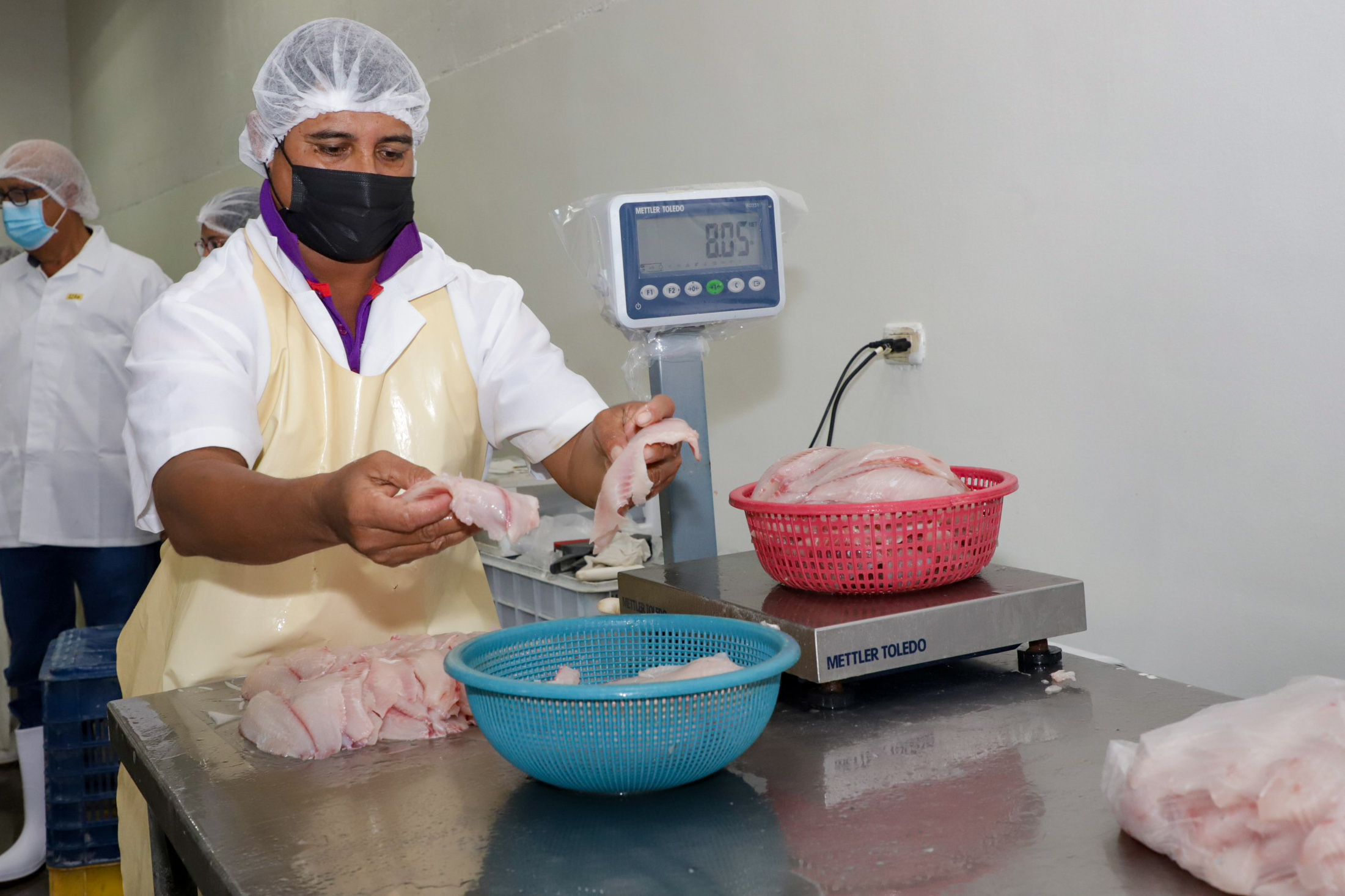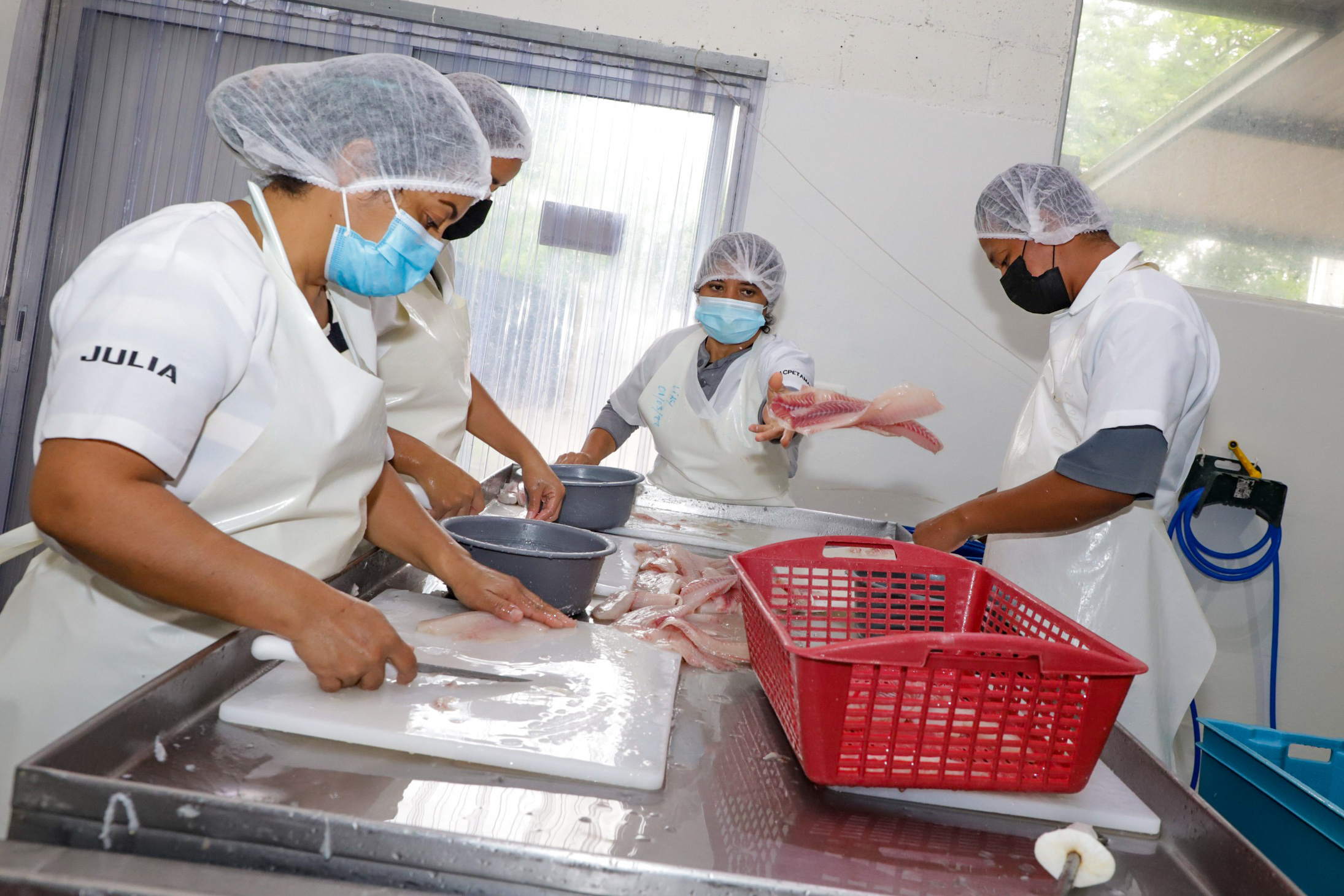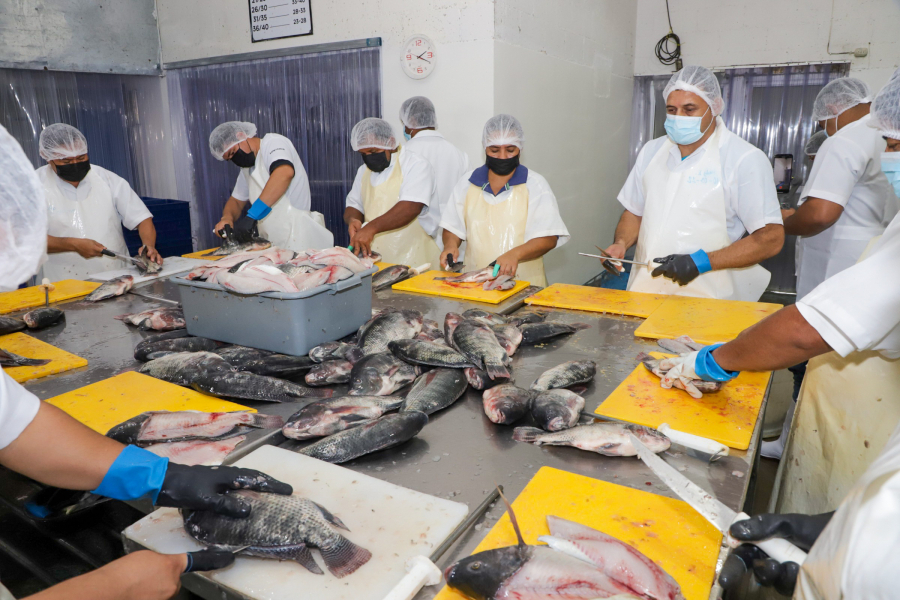The objective is also to ensure the safety of the production chain and good practices so that the product that reaches the consumers' table does not become a threat to their health.
"An aquaculture farm must comply with biosafety standards, water quality, records and good practices; in addition, it must pass 174 evaluation points that our technicians perform to ensure that they have a good quality in the products that will be taken to market", recommends the MAG.

The most recent visit was to the tilapia processing plant of the ACPETAMAR de R.L. Cooperative in Acajutla, Sonsonate. This cooperative processes approximately 8,000 to 9,000 pounds of tilapia per day, which supplies municipal markets and supermarkets.
"With CENDEPESCA we inspect the tilapia breeding centers and others. In tilapia we are 100% self-sustainable and we have the capacity to export, thus ensuring access to a varied diet for our population", said the head of MAG, Enrique Parada.

"I think it is excellent that the responsible institutions are doing this type of verification in the tilapia processing plants. This guarantees that people see that what they are consuming is of quality", said a representative of ACPETAMAR.

The production processes of the Salona Corporation farm were also inspected, where the company's representative, Marcela Barahona, said: "Despite the world crisis, we have the capacity to supply the local market. They make constant evaluations by MAG, and we meet the standards".
The canton El Gavilán San Pablo Tacachico, La Libertad is another tilapia production district where more than 160 fish farmers seek to supply local demand and that of neighboring countries.
 English
English  Español
Español 
